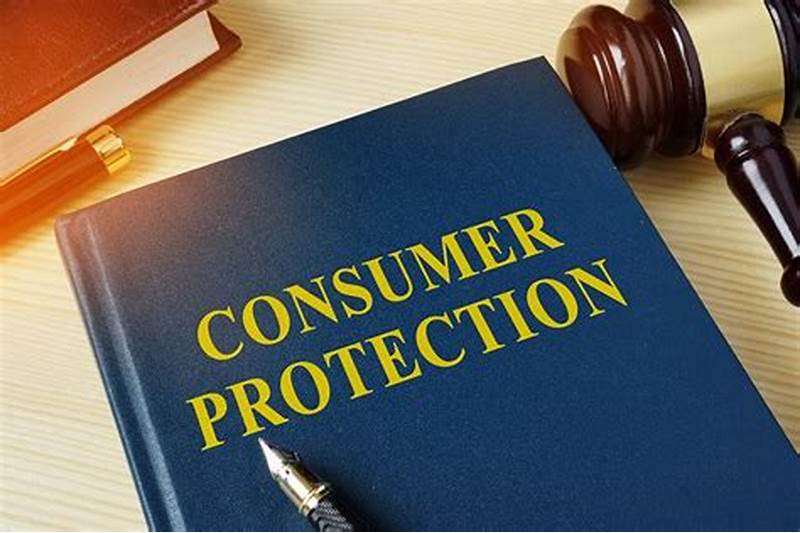Consumer protection is a fundamental right that ensures individuals are treated fairly when they purchase goods and services. In a fast-paced, consumer-driven society, the need for comprehensive consumer protection laws becomes ever more important to safeguard consumers from exploitation, fraud, or harm. In Nigeria, consumer protection laws aim to create a balanced relationship between consumers and businesses, ensuring that consumers’ rights are respected.
This article will delve into consumer protection laws in Nigeria, explaining their importance, the regulatory bodies involved, and some of the key laws that every Nigerian consumer should be aware of.
What Are Consumer Protection Laws?
Consumer protection laws are regulations and legal measures put in place to ensure that consumers are treated fairly and justly by businesses. These laws are designed to protect individuals from unethical practices, false advertising, unsafe products, and other forms of exploitation that can harm consumers.
In Nigeria, consumer protection laws are a mix of statutory laws, policies, and regulatory frameworks that aim to safeguard consumers’ rights. They empower consumers to seek legal recourse in cases of fraud, exploitation, substandard products, or unfair business practices.
Key Consumer Protection Laws in Nigeria
Nigeria has several legal frameworks and consumer protection laws that safeguard consumer rights. These laws are enforced by various regulatory bodies and agencies, such as the Consumer Protection Council (CPC), the Standards Organization of Nigeria (SON), and the National Agency for Food and Drug Administration and Control (NAFDAC). Below are some of the most significant consumer protection laws in Nigeria:
1. Consumer Protection Council Act (1992)
The Consumer Protection Council (CPC) Act is one of the primary legislative instruments for safeguarding consumers’ rights in Nigeria. Established in 1992, the CPC serves as a regulatory body responsible for promoting and protecting the interests of Nigerian consumers.
Key Features of the CPC Act:
-
Consumer Rights Advocacy: The CPC is mandated to promote awareness about consumer rights and create an environment where businesses treat consumers fairly.
-
Resolution of Consumer Complaints: The CPC is empowered to investigate consumer complaints and facilitate dispute resolution between consumers and businesses.
-
Product Safety: The Act emphasizes ensuring the safety of products and services available to Nigerian consumers by working with regulatory agencies like NAFDAC and SON.
How It Protects Consumers:
-
If you purchase a defective or unsafe product, you can file a complaint with the CPC, which can help resolve the issue.
-
The CPC also has the power to intervene in cases of misleading advertising, fraudulent practices, or excessive pricing.
-
If you are wronged by a company, the CPC ensures that you can seek redress either through mediation or legal action.
2. The Nigerian Standards Organization Act (2004)
The Standards Organization of Nigeria (SON) is responsible for ensuring the quality and safety of products in Nigeria. Under the SON Act of 2004, SON plays a crucial role in consumer protection by setting and enforcing quality standards for goods and services across various sectors.
Key Features of the SON Act:
-
Product Standards: SON is responsible for setting and enforcing standards for manufacturing, importation, and distribution of goods in Nigeria.
-
Certification of Products: The Act enables SON to issue product certifications for goods that meet Nigerian standards, ensuring that consumers purchase quality products.
-
Inspection and Enforcement: SON has the authority to inspect and enforce the withdrawal of substandard products from the market.
How It Protects Consumers:
-
As a consumer, SON ensures that the products you purchase are safe, durable, and of acceptable quality.
-
If you are sold counterfeit or substandard products, SON has the authority to seize and destroy them, protecting consumers from harm.
-
If an imported product does not meet Nigerian standards, SON has the power to recall such items from the market, ensuring that only high-quality goods are available to consumers.
3. The National Agency for Food and Drug Administration and Control (NAFDAC) Act
The NAFDAC Act regulates the importation, production, sale, and use of food and drug products in Nigeria. The National Agency for Food and Drug Administration and Control (NAFDAC) is responsible for ensuring the safety of food, pharmaceuticals, cosmetics, and medical devices, among other products.
Key Features of the NAFDAC Act:
-
Regulation of Food and Drugs: NAFDAC ensures that food and drugs in Nigeria meet acceptable safety standards.
-
Consumer Safety: The Act gives NAFDAC the authority to regulate and control the quality of food, drugs, cosmetics, and medical devices available in the Nigerian market.
-
Market Surveillance: NAFDAC is empowered to carry out inspections of businesses to ensure compliance with health and safety standards.
How It Protects Consumers:
-
NAFDAC helps protect consumers by ensuring that food products, drugs, and other health-related items are safe to use and free from contamination.
-
If you are sold fake or harmful drugs, cosmetics, or food items, NAFDAC has the power to recall them from the market.
-
NAFDAC ensures that consumers receive accurate and truthful labeling on food and drug products, protecting you from deceptive marketing practices.
4. The Federal Competition and Consumer Protection Act (FCCPA) (2019)
The Federal Competition and Consumer Protection Act (FCCPA), signed into law in 2019, is a modern piece of legislation that consolidates the framework for consumer protection in Nigeria. It aims to promote fair competition and protect consumers from unfair business practices, monopolies, and deceptive advertising.
Key Features of the FCCPA:
-
Fair Competition: The Act ensures that businesses compete fairly, preventing monopolies and unethical business practices.
-
Consumer Protection Rights: It establishes clear rights for consumers, including the right to product safety, fair pricing, and the right to seek redress for grievances.
-
Regulation of Market Practices: The Act enables the government to regulate market practices that may harm consumers, such as deceptive advertising, unfair trade practices, and the selling of substandard products.
How It Protects Consumers:
-
If you have been misled by false advertising or unfair business practices, the FCCPA provides a mechanism to file complaints and seek compensation.
-
The Act ensures that businesses are held accountable for harmful practices that exploit or deceive consumers, including price gouging or fraudulent behavior.
-
The FCCPA also provides provisions for consumers to report unethical business practices and seek remedy through the Consumer Protection Tribunal.
5. The Trade Marks Act (1990)
The Trade Marks Act provides legal protection to businesses and consumers regarding trademarks, preventing consumers from being misled by counterfeit goods.
Key Features of the Trade Marks Act:
-
Trademark Registration: The Act allows businesses to register their trademarks, which protect consumers from counterfeit or substandard products.
-
Protection of Intellectual Property: The Act ensures that trademarked products are protected from infringement, safeguarding both businesses and consumers from the effects of counterfeit goods.
-
Counterfeit Goods Regulation: The Trade Marks Act gives authorities the power to seize counterfeit products and penalize individuals who violate trademark laws.
How It Protects Consumers:
-
This law ensures that when you purchase branded goods, you are getting the original product, and it prevents you from being duped by counterfeit products.
-
By enforcing trademark laws, the Act protects consumers from the risks associated with fake or substandard goods, such as health hazards or financial loss.
How Can Consumers Protect Their Rights in Nigeria?
While consumer protection laws are in place, it is important for consumers to understand how they can protect themselves. Here are a few tips:
-
Know Your Rights: Always stay informed about the laws that protect you as a consumer. Understanding your rights will enable you to recognize when they are being violated and take appropriate action.
-
Report Violations: If you experience issues with products or services, report them to the appropriate regulatory bodies such as the CPC, NAFDAC, or SON.
-
Demand Redress: If you have been sold a faulty product or have been a victim of fraud, seek redress either through mediation or by filing a formal complaint with the relevant authority.
-
Join Consumer Advocacy Groups: Many organizations and NGOs in Nigeria advocate for consumer rights. Joining such groups can strengthen your voice and make it easier to fight for consumer rights.
Conclusion
Consumer protection laws in Nigeria serve as a safeguard for the interests of consumers in various sectors. From regulating the safety of products to ensuring businesses practice fair trade, these laws protect consumers from exploitation and harm. As a Nigerian consumer, it is important to understand these laws and know your rights, so you can confidently navigate the market and seek legal recourse when necessary.
By staying informed about consumer protection laws and actively participating in consumer advocacy, Nigerians can help shape a fairer and more just marketplace for everyone.


